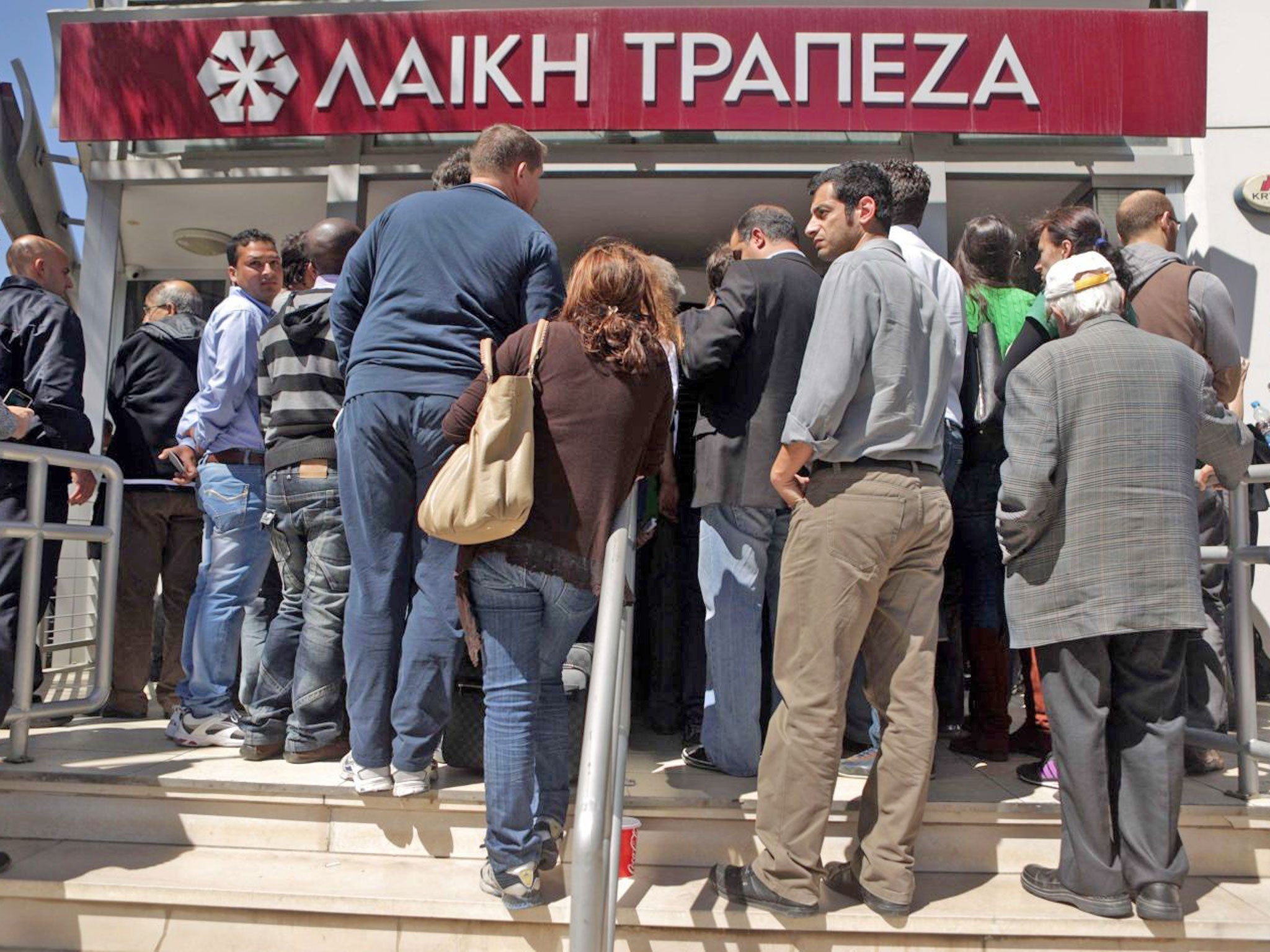Large depositors at Cyprus' largest bank may be forced to accept losses of up to 60 per cent, far more than initially feared, under the European rescue package to save the country from bankruptcy, officials said yesterday.
Those with deposits of more than €100,000 at the Bank of Cyprus would lose 37.5 per cent in money that would be converted into bank shares, according to a finance ministry decree obtained by the Associated Press. In a second raid on these accounts, depositors also could lose up to 22.5 per cent more, depending on what experts determine is needed to prop up the bank's reserves.
Germany's Finance Minister Wolfgang Schäuble sought to reassure bank customers elsewhere in Europe, saying in Germany's Bild newspaper yesterday that their savings were safe after the Cyprus deal. European officials have sought to stress that the island's bailout terms were a one-off – after an ill-advised suggestion by Eurogroup chairman Jeroen Dijsselbloem that the rescue would serve as a model if future crises rattled European financial markets.
The toughening of the terms will send a clear signal that the bailout means the end of Cyprus as a hub for offshore finance and could accelerate economic decline and bring steeper job losses. There is no sign for now, however, that ordinary customers in other struggling eurozone countries such as Greece, Italy or Spain are taking fright.
Banking and finance ministry officials confirmed the details of what happens with large deposits. They spoke on condition of anonymity because they are not authorised to discuss the issue publicly. The deposits that are converted to bank shares would theoretically allow depositors to recover their losses eventually. But the shares now hold little value and it's uncertain when – if ever – the shares will regain a value equal to the depositors' losses.
Europe has demanded that large depositors in the country's two largest banks – Bank of Cyprus and Laiki Bank – accept across-the-board losses to pay for the €16bn bailout. But officials had previously spoken of a loss to big depositors of 30 to 40 per cent. Analysts said that imposing bigger losses on major depositors could further squeeze already crippled businesses as Cyprus tries to rebuild its banking sector in exchange for the international rescue package.
"Most of the damage will be done to businesses that had money in the bank to pay suppliers and employees," said University of Cyprus economics Professor Sofronis Clerides. "There's quite a difference between a 30 per cent loss and a 60 per cent loss." With businesses shrinking, the country could be dragged into an even deeper recession, he said.
There is also concern that large depositors – including many Russians – would take their money and run once capital restrictions that Cypriot authorities have imposed on bank transactions to prevent such a possibility are lifted in about a month.
Cyprus agreed on Monday to make bank depositors with accounts over €100,000 contribute to a financial rescue to secure €10bn in loans from the eurozone and the International Monetary Fund. Cyprus needed to raise €5.8bn on its own in order to clinch the larger package, and banks had remained shut for nearly two weeks until politicians agreed on a deal.
But fearing that savers would pull their money out once banks reopened, Cypriot authorities imposed restrictions including daily withdrawal limits of €300 for individuals and €5,000 for businesses – the first so-called capital controls that any country has applied in the eurozone's 14-year history. The Cypriot President, Nicos Anastasiades, said on Friday that the €10bn bailout had contained the risk of bankruptcy and would prevent the country from leaving the euro.
Subscribe to Independent Premium to bookmark this article
Want to bookmark your favourite articles and stories to read or reference later? Start your Independent Premium subscription today.


Join our commenting forum
Join thought-provoking conversations, follow other Independent readers and see their replies